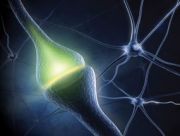Orally Administered Immunomodulator Continues to Show Promise as Treatment Option for Patients with Relapsing Remitting Multiple Sclerosis
Data indicate patients with relapsing remitting multiple sclerosis (RRMS) treated with BG-12 (dimethyl fumarate) showed no clinical disease activity for up to two years.

Copenhagen, Denmark — October 3, 2013 – Findings from an integrated analysis of data from two phase 3 trials showed that immune modulation with BG-12 (dimethyl fumarate) may be a viable long-term treatment option for treatment of patients with relapsing remitting multiple sclerosis (RRMS). Significantly more patients receiving BG-12 had no measured clinical disease activity for up to two years of treatment. In a cohort of patients with available magnetic resonance imaging (MRI) scans, approximately twice as many patients in the BG-12 arm had no measured overall disease activity patients at 6, 12, and 24 months compared with patients who received placebo.
Investigators reported no measured clinical disease activity at six months in 85% and 87% of patients treated with BG-12 240 mg two and three times daily, respectively, versus 78% of placebo patients (P<0.0003 and P<0.0001, respectively). At 12 months, no clinical disease activity was measured in 78%, 80%, and 65% of the respective groups (both P<0.0001). The proportion of patients showing no measured clinical disease activity at two years was 69% in patients receiving BG-12 twice daily and 71% in patients on a three times daily dosing schedule, compared to 53% of patients in the placebo arm (both P<0.0001).
These findings were reported during the October 3rd Immunomodulation/ Immunosuppression session of the 29th Congress of the European Committee for Treatment and Research in Multiple Sclerosis (ECTRIMS) and the 18th Annual Conference of Rehabilitation in MS.
Eva Havrdova MD, Professor of Neurology, Charles University, Prague, Czech Republic said these results were from an integrated analysis of data from the phase 3 DEFINE and CONFIRM studies, which both demonstrated the efficacy of BG-12. The CONFIRM trial showed that treatment with BG-12 reduced the annualized relapse rate by 44% (for twice-daily dosing) and 51% (thrice daily dosing) compared with placebo, and reduced the estimated proportion of patients with a relapse from 41% with placebo to 29% and 24%, for twice-daily and thrice-daily dosing, respectively. In the CONFIRM trial, patients receiving BG-12 showed fewer multiple sclerosis lesions on MRI scans than patients in the placebo arm. Both studies enrolled patients with RRMS.
Oral BG-12 (dimethyl fumarate) has activity in modulating Inflammation and oxidative stress, fundamental pathologic factors of MS. According to Havrdova, “There remains a considerable unmet need for safe treatment options that are more effective than current first-line agents and are applicable to a broad range of patients.”
The ITT population in this analysis was comprised of 2,301 patients who had been randomized to receive BG-12 240 mg twice daily (n=769), three times daily (n=761), or placebo (N=771) in either of the DEFINE or CONFIRM trials. The MRI cohort had 345 BG-12 twice, 354 BG-12 thrice daily patients, and 347 placebo patients who participated in either trial and had available MRI scans from baseline and at 6, 12 and 24 months. Baseline patient characteristics were well balanced between treatment groups in both studies and similar between the ITT population and MRI cohort.
Integrated data from the MRI cohort showed 40% of patients receiving BG-12 at either dose had no measured overall disease activity at six months compared to 23% of patients in the placebo arm (P<0.0001). No measured brain MRI disease activity was recorded in 46% of patients who received twice-daily BG-12, and in 45% of patients who received BG-12 three times daily. Just over one-quarter (26%) of patients who received placebo had no measured brain MRI disease activity at six months (both P<0.001).
After two years, 23% of patients who received BG-12 at both doses showed no measured overall disease activity, compared to 11% of patients receiving placebo (P<0.0001). Results at two years also showed 34% of patients receiving BG-12 twice daily, and 35% of patients receiving BG-12 three times daily, had no measured brain MRI disease activity, compared with 20% of patients who received placebo (both P<0.0001).
Together with the acceptable safety profile, these results support the potential for BG-12 as a long-term treatment option for patients with MS. “I would like to see BG-12 as a first line treatment,” said Havrdova. “Efficacy is dependent on disease state and we cannot afford to waste time treating patients approaching disability — we need markers that a treatment is working… I have zero tolerance for disease progression, it is a sign to switch treatments; we cannot wait for patients to respond in one or two years to treatment.”
This study was sponsored by Biogen Idec Inc, Weston, MA, USA.